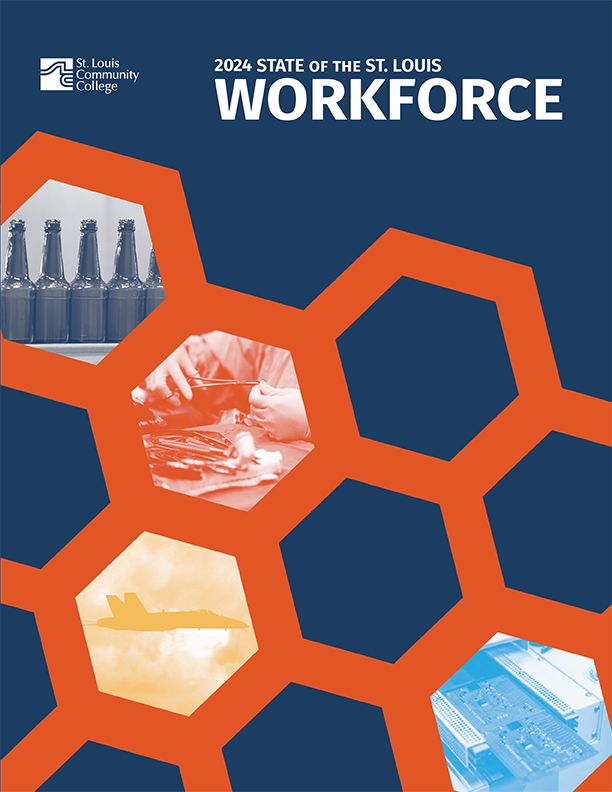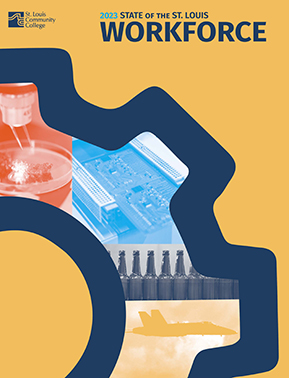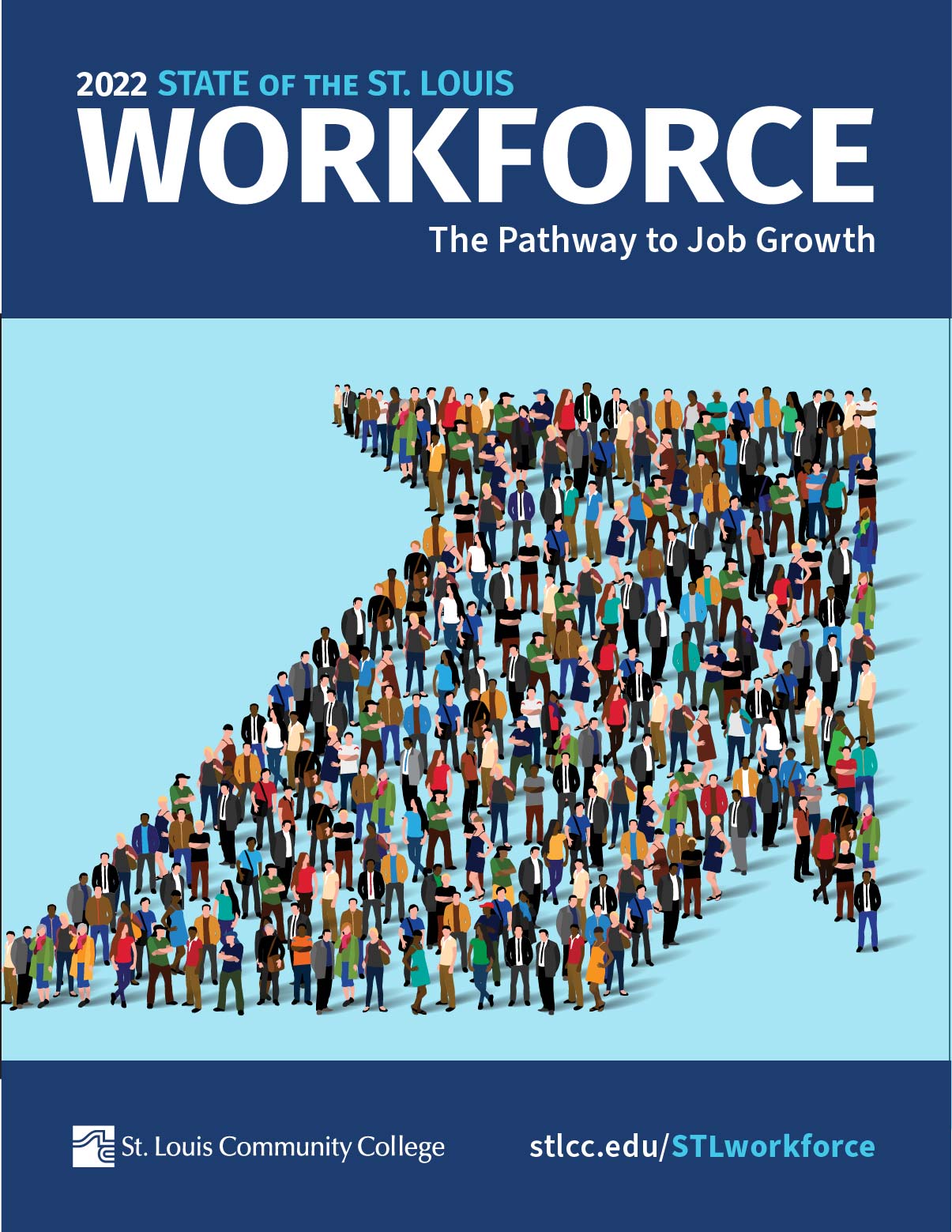State of the St. Louis Workforce
The 2025 State of the St. Louis Workforce report and event will examine the overall view of the St. Louis metro workforce spotlighting the impact of transportation in our region. Don't miss it!
Register Today
Our Workforce, Our Mission
Understanding the Greater St. Louis region's workforce is the first step in developing talent and building successful partnerships. Each year, the State of the St. Louis Workforce report and event explore trends and needs impacting regional employers and the labor market.
To set our students up for success, we need to teach them relevant skills for in-demand fields. To teach them those skills, we need to understand the needs of the workforce. We use our research to shape our programs so that our graduates are equipped to excel in the ever-evolving job market.
Each year, we invest time and resources into taking an in-depth look at the job market around us. We then present our findings to the community at our annual State of the St. Louis Workforce event.
Questions? Please send them to: SOSLW@stlcc.edu.
Download the 2024 Report
The 2024 State of the St. Louis Workforce report provides a comprehensive overview
of the regional economic and workforce trends. The report highlights an industry sector
each year to track trends that are key to the region. This report includes a spotlight
on the health care industry, the largest employment sector for the St. Louis region,
and a longtime creator of research and startups. The St. Louis area holds 48% of Missouri’s
jobs in health care. (Quarterly Workforce Indicators, U.S. Census Bureau, Annual Averages,
2023 Q1-3, 2022 Q4).
Download the report release presentation slides
Download the 2023 Report
The 2023 State of the St. Louis Workforce report focuses on the comprehensive overview
of the regional economic and workforce trends. It adds a highlight on an individual
sector each year to track trends in a specific industry that is key to the region,
and therefore key to St. Louis Community College’s education and training efforts.
This report includes a spotlight on advanced manufacturing, a pillar of our region
and gateway to future economic growth and jobs. The St. Louis area holds 42% of Missouri’s
jobs in advanced manufacturing.
Download the report release presentation slides
Download the 2022 Report
For the first time in three years, we can examine the St. Louis workforce beyond the
immediate impact of the COVID-19 pandemic. The annual State of the St. Louis Workforce
report supplies our region with a clearer picture of our primary asset: our workers.
The report also highlights three key topics that impact St. Louis now and that will
continue to influence our economy for the foreseeable future: geospatial, startups,
and immigration. For all the attention they receive in the media, they remain buzzwords
and a mystery for most of us.
Download the report release presentation slides


